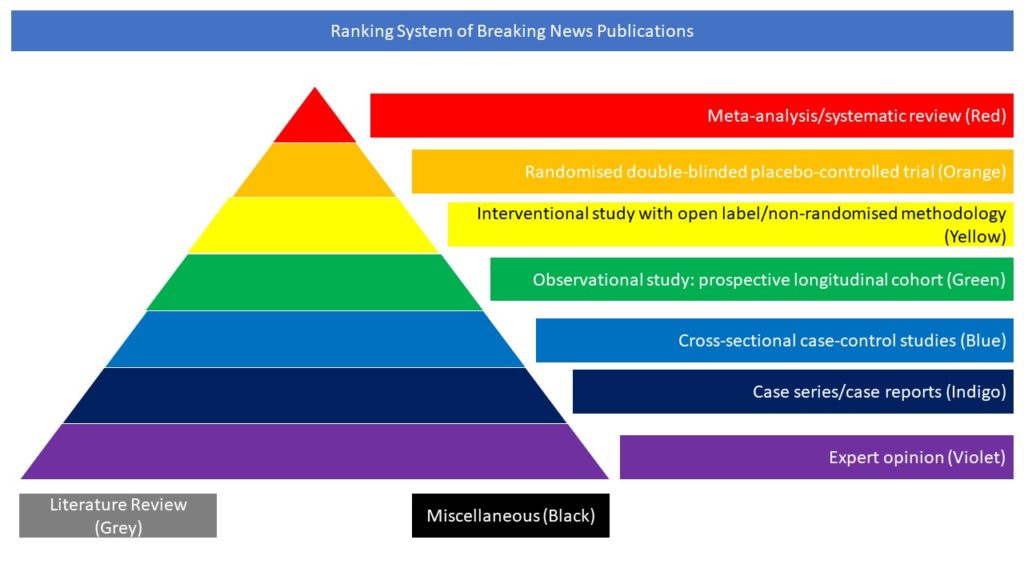Cross-sectional case-control studies (Blue)
Pregnant women are at increased risk of morbidity and mortality from COVID-19 but have been excluded from the phase 3 COVID-19 vaccine trials. Data on vaccine safety and immunogenicity in these populations are therefore limited. The objective of this study was to evaluate the immunogenicity of COVID-19 messenger RNA (mRNA) vaccines in pregnant and lactating women, including against emerging SARS-CoV-2 variants of concern. This exploratory, descriptive, prospective cohort study enrolled 103 women who received a COVID-19 vaccine from December 2020 through March 2021 and 28 women who had confirmed SARS-CoV-2 infection from April 2020 through March 2021 (the last follow-up date was March 26, 2021). This study enrolled 30 pregnant, 16 lactating, and 57 neither pregnant nor lactating women who received either the mRNA-1273 (Moderna) or BNT162b2 (Pfizer-BioNTech) COVID-19 vaccines and 22 pregnant and 6 nonpregnant unvaccinated women with SARS-CoV-2 infection. SARS-CoV-2 receptor binding domain binding, neutralizing, and functional nonneutralizing antibody responses from pregnant, lactating, and nonpregnant women were assessed following vaccination. Spike-specific T-cell responses were evaluated using IFN-γ enzyme-linked immunospot and multiparameter intracellular cytokine–staining assays. Humoral and cellular immune responses were determined against the original SARS-CoV-2 USA-WA1/2020 strain as well as against the B.1.1.7 and B.1.351 variants. This study enrolled 103 women aged 18 to 45 years (66% non-Hispanic White) who received a COVID-19 mRNA vaccine. After the second vaccine dose, fever was reported in 4 pregnant women (14%; SD, 6%), 7 lactating women (44%; SD, 12%), and 27 nonpregnant women (52%; SD, 7%). Binding, neutralizing, and functional nonneutralizing antibody responses as well as CD4 and CD8 T-cell responses were present in pregnant, lactating, and nonpregnant women following vaccination. Binding and neutralizing antibodies were also observed in infant cord blood and breast milk. Binding and neutralizing antibody titers against the SARS-CoV-2 B.1.1.7 and B.1.351 variants of concern were reduced, but T-cell responses were preserved against viral variants.
The authors concluded that in this exploratory analysis of a convenience sample, receipt of a COVID-19 mRNA vaccine was immunogenic in pregnant women, and vaccine-elicited antibodies were transported to infant cord blood and breast milk. Pregnant and nonpregnant women who were vaccinated developed cross-reactive antibody responses and T-cell responses against SARS-CoV-2 variants of concern.
Collier AY, et al. Immunogenicity of COVID-19 mRNA Vaccines in Pregnant and Lactating Women. JAMA. 2021 May 13. doi: 10.1001/jama.2021.7563













